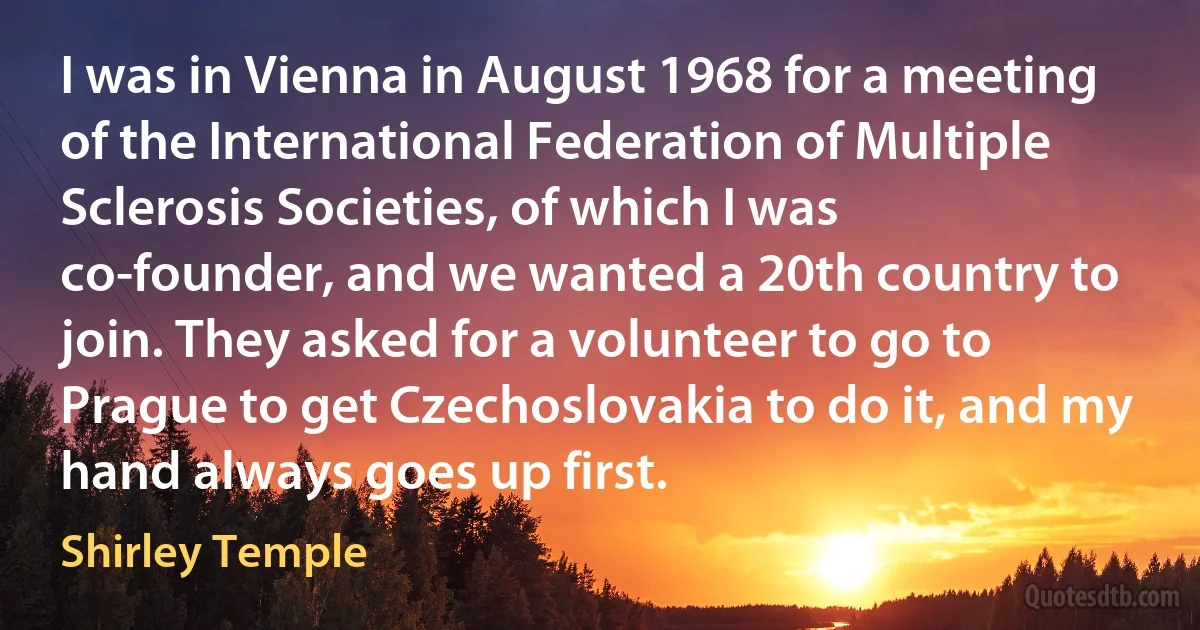Prague Quotes - page 2
I welcome Senator McCain's important statement on President Reagan's legacy and the need to move toward a world free of nuclear weapons. In my speech in Prague, I outlined my agenda for keeping the American people safe from the dangers posed by nuclear weapons, and I am grateful to John McCain for his leadership on these critical issues. I have outlined an ambitious strategy for promoting arms control and preventing nuclear terrorism and proliferation, which is already bearing fruit. I look forward to working with Senator McCain and the entire Congress to ensure that we accomplish these goals together for the American people and the security of the entire planet.

John McCain
I was 25 years old and pursuing my doctorate in economics when I was allowed to spend six months of post-graduate studies in Naples, Italy. I read the Western economic textbooks and also the more general work of people like Hayek. By the time I returned to Czechoslovakia, I had an understanding of the principles of the market. In 1968, I was glad at the political liberalism of the Dubcek Prague Spring, but was very critical of the Third Way they pursued in economics.

Friedrich Hayek
Castoriadis has given this tradition [the tradition of praxis philosophy] new life by introducing a unique linguistic turn. His work has a central place among the new departures in praxis philosophy that have evolved since the mid-1960s, especially in Eastern Europe (in Prague, Budapest, Zagreb, and Belgrade), and that for a decade enlivened the discussions at the Summer School of Korčula. It is the most original, ambitious, and reflective attempt to think through the liberating mediation of history, society, external and internal nature once again as praxis.

Cornelius Castoriadis
Great times call for great men. There are unknown heroes who are modest, with none of the historical glamour of a Napoleon. If you analysed their character you would find that it eclipsed even the glory of Alexander the Great. Today you can meet in the streets of Prague a shabbily dressed man who is not even himself aware of his significance in the history of the great new era. He goes modestly on his way, without bothering anyone. Nor is he bothered by journalists asking for an interview. If you asked him his name he would answer you simply and unassumingly: 'I am Švejk....'

Jaroslav Hašek
If Stalin engineered the Prague coup without fully anticipating these consequences, it was not just because he had always planned to enforce his writ in a certain way throughout the bloc. Nor was it because Czechoslovakia mattered much in the grand scheme of things. What happened in Prague-and what was happening at the same time in Germany, where Soviet policy was moving swiftly from stonewalling and disagreement to open confrontation with her former allies-was a return by Stalin to the style and strategy of an earlier era. This shift was driven in general terms by Stalin's anxiety at his inability to shape European and German affairs as he wished; but also and above all by his growing irritation with Yugoslavia.

Tony Judt
Lenin's distinctive contribution to European history had been to kidnap the centrifugal political heritage of European radicalism and channel it into power through an innovative system of monopolized control: unhesitatingly gathered and forcefully retained in one place. The Communist system might corrode indefinitely at the periphery; but the initiative for its final collapse could only come from the centre. In the story of Communism's demise, the remarkable flowering in Prague or Warsaw of a new kind of opposition was only the end of the beginning. The emergence of a new kind of leadership in Moscow itself, however, was to be the beginning of the end.

Tony Judt

